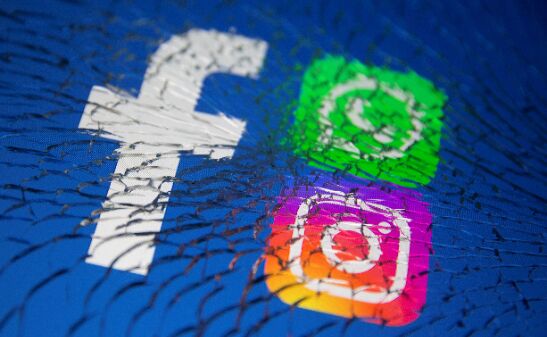At a standstill!

The virtual community space, dominated by Facebook-run platforms, came to standstill late Monday — and this time around for a strangely long period of six hours. This Facebook outage may clearly be distinguished from normal hiccups. While the social media and messaging platforms are back to business now, the passed limbo certainly threw some insights around the centrality, as also the vulnerability, of the internet spaces in question. The buzz created the world over around the outage reasserts the prominence Facebook-run platforms have acquired over the internet. These platforms have now come to dictate our lives in many different ways. Experts across the globe have long been flagging the concerns around privacy issues, psychological impacts of the overuse of these platforms as well as addiction threats. Quite recently, the former civic integrity product manager of Facebook — Frances Haugen — publicly alleged that Facebook had prioritized profit over public safety. The flagged risks are real and their ignorance may have a paramount negative impact on societies globally. Basically, in the context of the outage, what a section of the experts' community is able to conceive is a window for alternative sources of virtual engagement among people. This might seem a fragile argument as the Facebook-run platforms have quickly bounced back to regain their dominance, but at least a thought is provoked in this direction. Facebook has attributed certain inconsistencies in 'internal configuration' as the cause of the outage without particularly specifying the cause. One of the important things to note is that the single-point operations of all the Facebook platforms make them vulnerable to technical inconsistencies simultaneously. A pertinent question that has to be raised here is that can such a centralized control of voluminous data around the three billion combined users of Facebook, Instagram, WhatsApp and Oculus be trusted upon? The reported problem with the Facebook outage has been that the digital devices of the Facebook users were not able to find the parent servers. In a way, the platforms seemed to be lost amid the humongous network of the internet. Generally, access to such platforms is facilitated by Domain Name System (DNS) and Border Gateway Protocol (BGP). While the BGP locates the route to the commanded destination, DNS is the destination itself. The problem with the Facebook outage can be located at some point in this networking system. Furthermore, the outage has affected Facebook's internal systems due to which its employees were locked out of control rooms. And Facebook was not the only party to suffer in the process, it took with it Instagram, WhatsApp, Messenger etc. The present situation offers two points for pondering: First, is it even right that people are allowing access to a significant amount of data to the hegemonic control of Facebook? And second, how good is it for parent companies to carry out centralized operations of all allied platforms — putting the convenience and safety of a large section of the global population at risk. Advertently or inadvertently, a hard-to-break monopoly is created in the social media space. There is no doubt that social media companies have offered platforms for free speech and expression — and they even claim to have minimal control over what people express on their timeline — but the tenets of free speech are too profound to be rested upon the shoulders of a handful of companies. It is a tad bit shocking that the outage of a single company has now come to be discussed as a global phenomenon. On one hand, it is up to the people to start looking at any particular social media company as an alternative mode of engaging with people, and not an imperative mode. It is the users and their actions that wield power to these big companies. It is an unhealthy sign that the operations — as well as outages — of certain companies should dictate the life and convenience of people. It won't be wrong to say that the social media market is taking a rather long time to diversify itself; people's actions can go a long way in facilitating the process to ensure more choices for themselves. Further, the time has still not passed for debates around prioritizing physical meeting spaces and inter-personal communication over virtual spaces; this debate should rather gain pace in today's world. Social media companies surely come with great advantages but there are numerous ill-effects and frivolous aspects to it as well. The time now is to look at these spaces through a utilitarian lens and diversify our usage across local and global platforms to strike the right balance. To say, the six-hour outage could have well served as a retrospective space for people to come out of the blind following of the social media trend.



